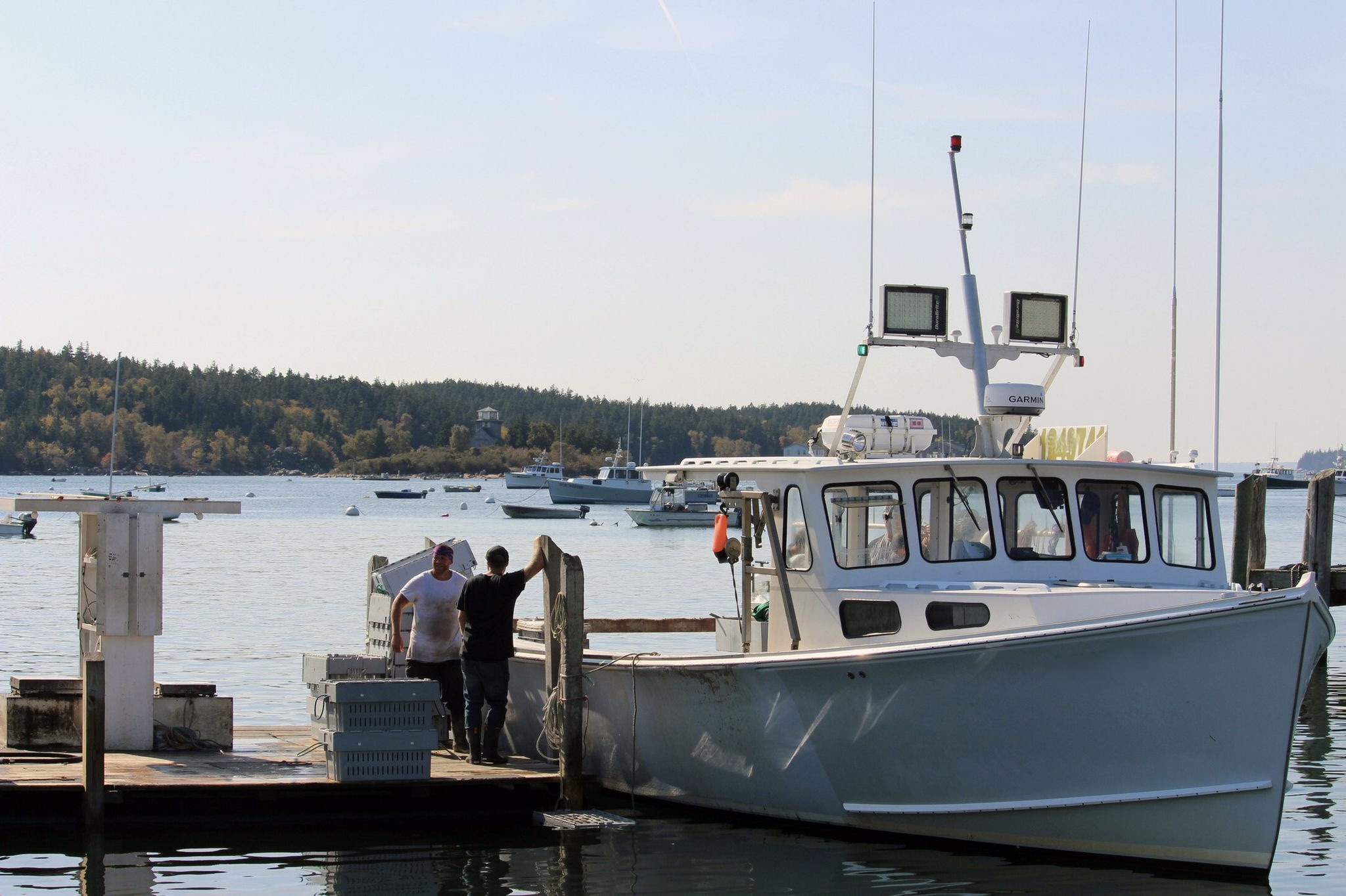
Challenges and Opportunities for Social and Economic Science in the American Lobster Fishery
Authors: Kat Maltby is a postdoctoral research associate at the Gulf of Maine Research Institute (GMRI) whose work examines the social resilience of the Maine and southern New England lobster fishery; Kanae Tokunaga, a senior scientist at GMRI, and Alexa Dayton, the executive director of the Maine Center for Coastal Fisheries, have worked to explore the economic diversity in Maine’s lobster fleet; Theresa Burnham is a postdoctoral researcher at the University of Maine (UMaine) whose work explores social indicators of resilience in the lobster fishery; and Jay Kim is a doctoral student at UMaine who has developed a climate-informed habitat-landings model for the fishery.
Despite being one of the most well known and studied fisheries in the United States, up until recently, the American lobster fishery has mostly been researched through a biological lens. Yet, the fishery also has huge cultural, social, and economic value, and faces a range of challenges that demand a deeper understanding of the people, markets, and management practices that contribute to the fishery. To help tip the scales in favor of these human dimensions, a group of researchers has been actively undertaking a range of projects to further our knowledge of this iconic fishery. Below, our group reflects on some of the key challenges we have encountered and shares some opportunities to move this work forward.
Developing insights into social, cultural, and economic dimensions depends on having data to inform analyses. Currently, a lack of or ‘patchy’ data alongside difficulties in data access limits the types of questions we are able to ask, leaves gaps in knowledge for addressing complex challenges currently facing the industry, and hinders policy and management relevant research. For example, establishing a routine socio-economic survey that collects information beyond prices and landings or captures demographic information for crew in addition to skippers would be particularly valuable. Additionally, expanding the lens of data collected from harvesters to shoreside operators and community members would allow us to develop more extensive community and supply chain-focused research.
Working with industry members and fishing communities is integral to understanding perceptions and experiences, integrating on-the-water knowledge with scientific perspectives, and identifying future needs. Yet, such engagement can require people to take time away from their jobs or the water. Given the complexity of issues the fishery is facing, over-engagement and fatigue may reduce people’s willingness to participate. As researchers, we have a duty to not engage in ways that are ‘extractive’ or are misaligned with the needs or interests of the communities that we serve. Navigating these issues is a difficult and ongoing challenge, but we have identified some opportunities to improve this process, such as: including communities and industry partners early on to identify relevant research questions and encourage participation; providing continuous communication on the progress of research projects to share results with both scientists and community members; and using creative data sources to inform research efforts, reduce redundancy across projects, and lessen the burden of participation from stakeholders when appropriate.
An additional challenge centers on integrating social and economic science into current management frameworks and stock assessments, in part because these types of data can be hard to quantify. Current fisheries management is mainly informed by science focused on lobster biology and stock assessment, which limits the incorporation of other types of knowledge into management actions. One option for integration, however, is through the development of holistic models that purposefully include both biological and social (and/or economic) factors within them. Working with fisheries managers directly can also help identify ‘in-roads’ for this type of information to be used in their frameworks. Management processes themselves could also benefit from the broader breadth of social and economic research that examines management impacts, including fisheries co-management, knowledge co-production, and stakeholder communication and engagement.
Our current efforts to build on seminal social and economic science studies have resulted in exciting progress in understanding the human dimension of this iconic fishery. In a time of increasing change both at sea and on shore, such information is increasingly valuable. Challenges, like data availability and accessibility, overburdening of stakeholders, and difficulties in management integration inhibit some of this work, but we have identified a number of opportunities as well. The history of collaborative research within the American lobster fishery is an important and unique aspect that can facilitate this kind of science, and our work would not have been possible without the invaluable input from numerous industry members, communities, and research partners. There has also been growing recognition from funders and institutions on the value of social and economic approaches to help sustain these efforts. Ultimately, combining these insights with more biologically focused research will provide more holistic understandings of the fishery, helping to inform industry, research, and management decisions into the future.
Posted 8 November 2023
